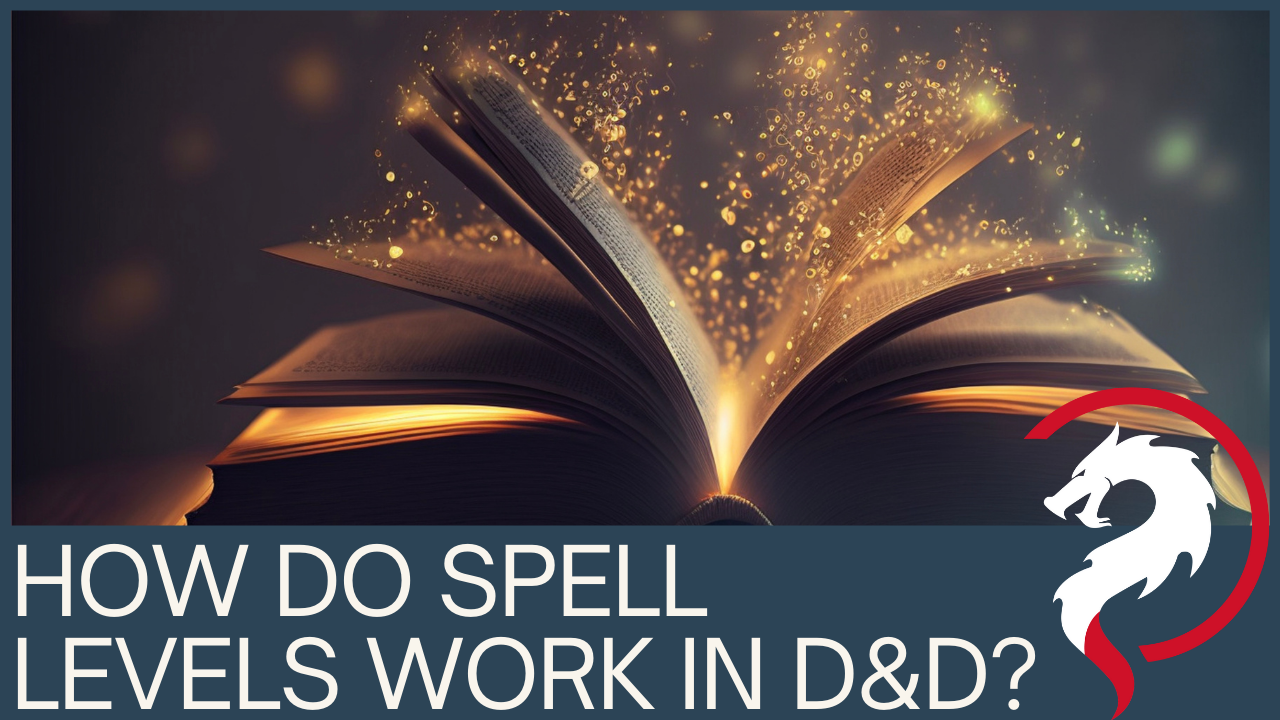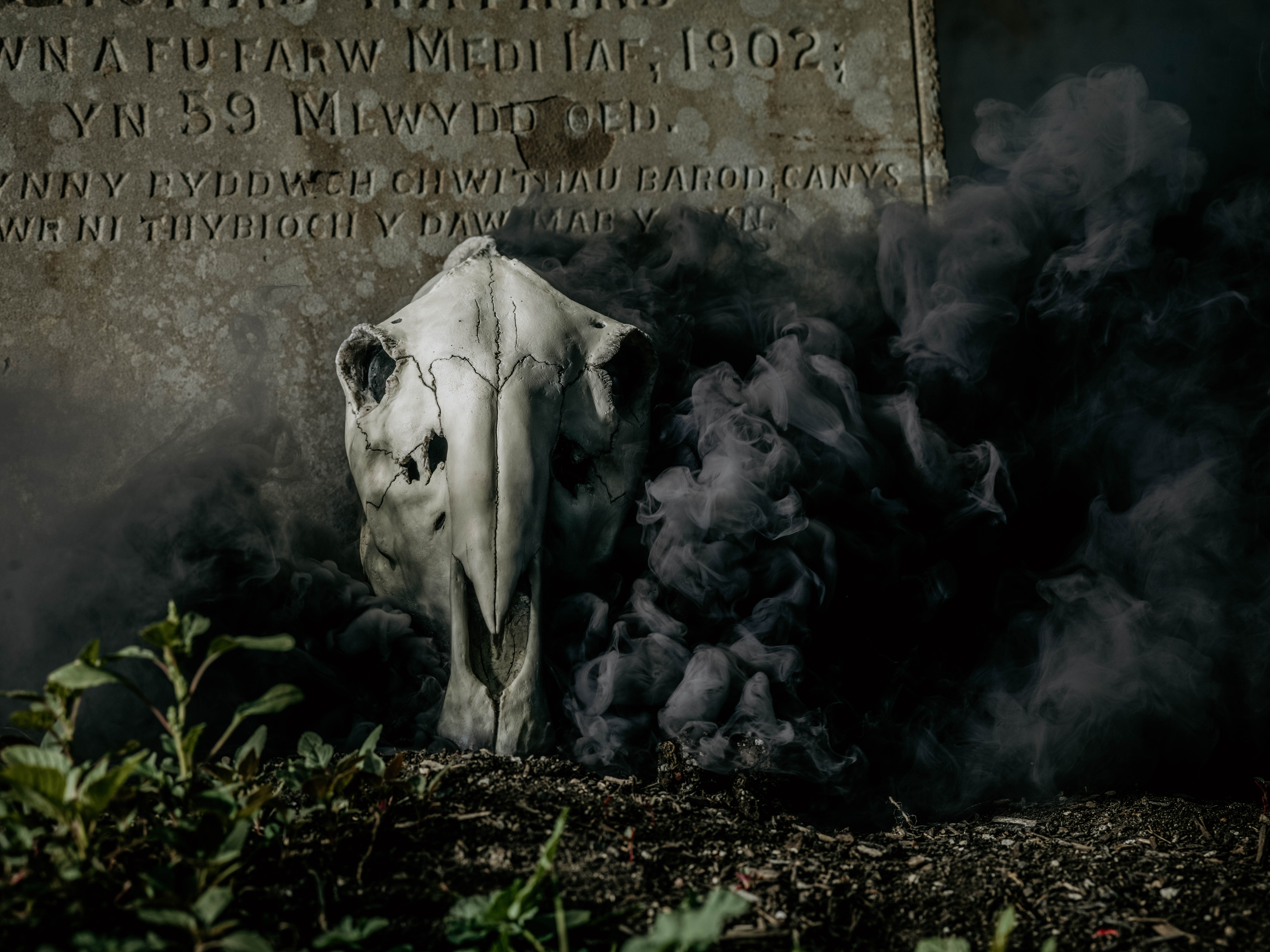How Do Spell Levels Work in Dungeons & Dragons?

Session Zero
If games are about what they have rules for, then Dungeons & Dragons – at least from the player’s perspective – is about casting spells. In the 5th edition Dungeons & Dragons Players Handbook, 88 of the book’s 316 pages are about how magic works and lists the spells in the game – more pages than are devoted to any other single topic – and yet the jargon-y nature of the term “spell levels” continues to confuse players and Dungeonmasters alike. Let’s take a minute to set the record straight.
Basics of Spell Levels
In Dungeons & Dragons, each spell is categorized by relative power into various levels, from 0 (the weakest) to 9 (the most powerful spells in the game). Spell level shouldn’t be confused with class level, though; the levels of spells that a character has access to is tied to their class’s class level. For example, a 5th-level wizard (class level) can cast up to 3rd-level spells (spell level). You may be tempted to think that a higher-level spell is always better than a lower-level spell, but it’s important to understand that your character’s access to each spell level is limited by a resource called spell slots (see below). One noteworthy exception to this limitation is 0-level spells, called Cantrips, which require no resources or spell slots to cast, making them a valuable renewable resource in the spellcaster’s magical arsenal.
*Tip from a Veteran Gamer: Most spellcasting classes’ most iconic spells are 3rd-level spells – classics like fireball and lightning bolt for wizards & sorcerers, animate dead and revivify for clerics and call lightning for druids. Most spellcasting classes gain access to 3rd-level spells when they attain level 5 in that class, making 5th level a huge milestone in most casters’ careers.
Spell Slots and Casting
If spell level is a measure of a spell’s comparative power, you can think of spell slots as magical fuel: a resource that you use up when you cast a spell. Each caster has a number limited number of spell slots for each spell level that they can cast; once this fuel is used up by casting a spell, it’s gone until the character refuels by taking a long rest.
Some classes, like wizards and clerics, prepare a selection of specific spells each day, a short list of spells from their overall repertoire of which is much broader. Other classes, like sorcerers and bards, have a much smaller repertoire of spells (a limited number of spells known) but can cast any spell they know as long as they have the spell slots.
For example, a 5th-level wizard has four 1st-level spell slots and three 2nd-level spell slots and decides to cast magic missile, a 1st-level spell. As long as they have an availale 1st-level spell slot to fuel the spell, they can cast magic missile, they can cast it but once they’ve used up all their 1st-level spell slots, they’ll have to take a long rest to cast it again.
*Tip from a Veteran Gamer: Never take magic missile as one of your spells as a low-level wizard. Learn sleep instead; it makes a bigger splash in combat and may have out-of-combat uses you’re not thinking about yet.

Learning and Preparing Spells
Each class has its own way of learning and preparing spells. Wizards learn spells by transcribing them into their spellbooks, collections of accumulated arcane knowledge that are any wizard’s most prized possession. Wizards then choose a number of spells from their spellbook to prepare each day, creating a rotating daily repertoire of spells that they can switch up from day to day.
Clerics also prepare spells ahead of time, choosing – again – a limited daily repertoire of spells that can change from day to day. Unlike wizards, however, clerics get to choose any spells they’d like from the cleric spell lists, though their deities may have something to say if a particularly blasphemous spell gets prepared. Cleric domains (their version of subclasses) give clerics additional functionality, adding domain spells as a sort of “always prepared” option.
Bards and sorcerers gain new spells as they level up, as do warlocks. Their “spells known” list is as lot like the cleric & wizard’s list of daily prepared spells, but they don’t get to switch them out as frequently (usually only when the character gains a class level).
Higher-Level Casting
One of the exciting aspects of spellcasting in D&D is the ability to cast spells at higher levels. When you cast a spell using a higher-level spell slot, you often enhance the spell's effects. This mechanic not only adds power to your arsenal but also introduces strategic depth to your spellcasting choices.
The biggest innovation in 5th edition Dungeons & Dragons is a feature of some spells to be cast using a higher-level spell slot to gain a greater effect. By making some spells more flexible in this manner, your lower-level spell selections matter more: you’re not just preparing a 1st-level spell in many cases, you’re preparing 1st-level spell that’s also a 2nd-level spell that’s also a 3rd-level spell that also a… you get the idea.
One of the best possible examples of this logic is the 1st-level divine spell cure wounds. When cast as a 1st-level spell, cure wounds restores 1d8 lost hitpoints to a target that the caster can touch. If you use a 2nd-level spell slot to cast the spell, however, you add another d8 healing, for a total of 2d8. This spell scales upward all the way to 9th level! Healing 9d8 hit points out what is ostensibly a 1st-level spell is pretty awesome. Other spells like fireball offer similar scalability options on the offensive side.
Insights from Veteran Players
To give you more insights, we reached out to some experienced DMs and players about their favorite spells and strategies.
"One of my favorite strategies is using 'Hold Person' at higher levels. Paralyzing multiple enemies at once can completely change the dynamics of a fight." - Alex, DM for 10 years.
"I love the flexibility of being a wizard. Preparing different spells each day lets me adapt to whatever challenges we might face. One day it's 'Invisibility' for a stealth mission, the next it's 'Acid Arrow' for a big fight." - Jamie, player and occasional DM.
"Sorcerers are fantastic for their metamagic abilities. Being able to twin a spell like 'Haste' to boost two party members at once has saved us more times than I can count." - Morgan, veteran player.
End of Session
Understanding spell levels in Dungeons & Dragons is a key step to mastering the art of playing a spellcasting character. From cantrips to powerful 9th-level spells, the spellcasting system offers a wealth of strategic and dramatic options. Dive in, experiment with different spells, don't be afraid to use your spell slots creatively. Remember: in D&D, magic is as much about imagination as it is about incantations. Go out there and cast some spells — you've got adventures to conjure!
Recent posts